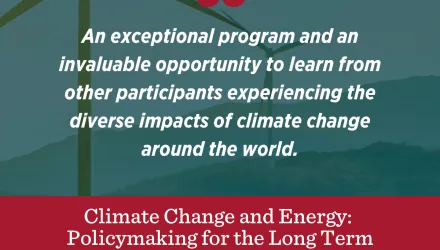The Paris Agreement ("Agreement")1 has been widely lauded as a major step forward in multilateral efforts to address global climate change. Its bottom-up approach based on national pledges, its universal scope entailing substantive commitments by both developed and developing countries, its ambitious climate targets, and other aspects of the Agreement have generated extensive discussion, drawing praise from many and eliciting criticism from others (e.g., Bodansky, 2015; Gillis, 2015; Victor, 2015; Winkler, 2015).
We survey the implications of the revamped climate policy regime for carbon removal and solar geoengineering, hereafter referred to using the common acronyms carbon dioxide removal (CDR) and solar radiation management (SRM). While a few analyses have examined the post-Paris role of CDR (Lewis, 2015), there has been almost no analysis of the implications for SRM. We first review the Agreement before turning to an examination of its implications for CDR and SRM....
The entire Viewpoint may be downloaded below.
1The text of the Agreement and accompanying COP Decision may be found at: http://unfccc.int/resource/docs/2015/cop21/eng/10a01.pdf.
Joshua B. Horton, Harvard Kennedy School
David W. Keith, Harvard University
Matthias Honegger, Perspectives Climate Change
Viewpoints present policy proposals, considered opinions, and commentary by distinguished policymakers, leaders from business and non-governmental organizations, and scholars. The Harvard Project on Climate Agreements does not advocate any specific climate-change policy proposals. Statements and views expressed in Viewpoints are solely those of the authors and do not imply endorsement by Harvard University, the Harvard Kennedy School, or the Harvard Project on Climate Agreements.
Horton, Joshua, David Keith and Matthias Honegger. “Implications of the Paris Agreement for Carbon Dioxide Removal and Solar Geoengineering.” Harvard Project on Climate Agreements, Belfer Center, July 2016







